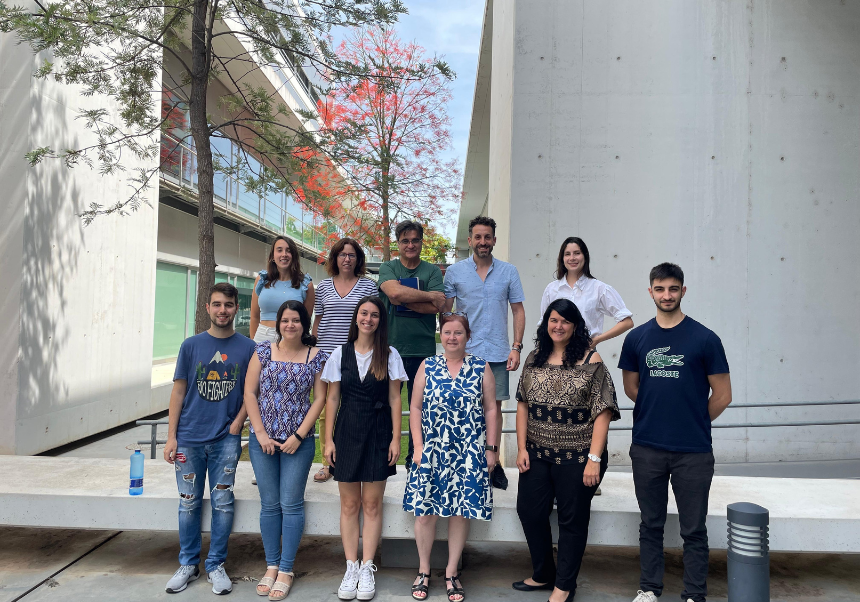
MATS holds its first seminar on “Biopolymer Design and Plastic Waste Valorization.”
The MATS group has launched its seminar series with an event focused on biopolymer design and plastic waste valorization, highlighting advances in sustainable materials and recycling technologies. The seminar showcased developments in globally relevant areas such as biomaterials development, utilization of agroforestry waste, and accelerated biopolymer degradation.
Camila Arango opened the presentations with her research on silk sericin-based materials designed for drug delivery in wound treatment. Her work focuses on designing biopolymers with specific properties for biomedical applications.
Rosana Moriana presented on biorefinery and the valorization of forest and agricultural residues, focusing on the production of high-value-added bioproducts from sustainable resources.
Cristina Martín highlighted progress in the bioplastics ecosystem under the influence of starch structure, exploring how structural characteristics impact material properties.
In the field of plastic recycling, Mireia Fernández presented an innovative screening method to evaluate the effectiveness of deinking technologies in polyester recovery, offering solutions to improve the quality of recycled plastics.
Roy Ruiz shared his findings on biopolymer degradation via plasma treatment, demonstrating how this technology can accelerate degradation and support more efficient plastic waste management.
Finally, Karen Gutiérrez presented a UV-based approach to accelerate the biodegradation of biopolymers, emphasizing the potential of this technology to shorten decomposition times in controlled environments.
This seminar reinforces the MATS group’s commitment to research in biopolymers and sustainable recycling, aligning with circular economy principles and contributing innovative solutions to current environmental challenges.
This seminar is part of the outreach activities of the BIOFAST project: Methodological Strategies for the Accelerated Biodegradation of Bioplastics in Composting Environments, (INNEST/2022/295), funded by the Valencian Innovation Agency





